I am not familiar with linq complex queries, how can I write the following?
Three tables: Library,Batch,Plan
Library: BatchId ProcessingQuantity
Batch: BatchId
Plan: PlanNo Name Quantity ExecState Date
SELECT b.ProductionPlanBatchId,
a.ProductionPlanNo,
a.ProductConfigName,
sum(c.ProcessingQuantity) AS 'ProcessingQuantity',
sum(a.Quantity) AS 'Quantity',
a.ExecState,
round(CONVERT(float,sum(c.ProcessingQuantity))/CONVERT(float,sum(a.Quantity)), 2) AS 'Percent',
a.ProcessingCompletionDate
FROM ProductionPlan a,
ProductionPlan_Batch b,
ProductionLibrary c
WHERE a.ProductionPlanId = b.ProductionPlanId
AND b.ProductionPlanBatchId = c.ProductionPlanBatchId
AND a.ExecState <> 'Deleted'
GROUP BY b.ProductionPlanBatchId,
a.ProductionPlanNo,
a.ProductConfigName,
a.ProcessingCompletionDate,
a.ExecState
HAVING round(Convert(float,sum(c.ProcessingQuantity))/Convert(float,sum(a.Quantity)), 2) < 1
ORDER BY b.ProductionPlanBatchId DESC
